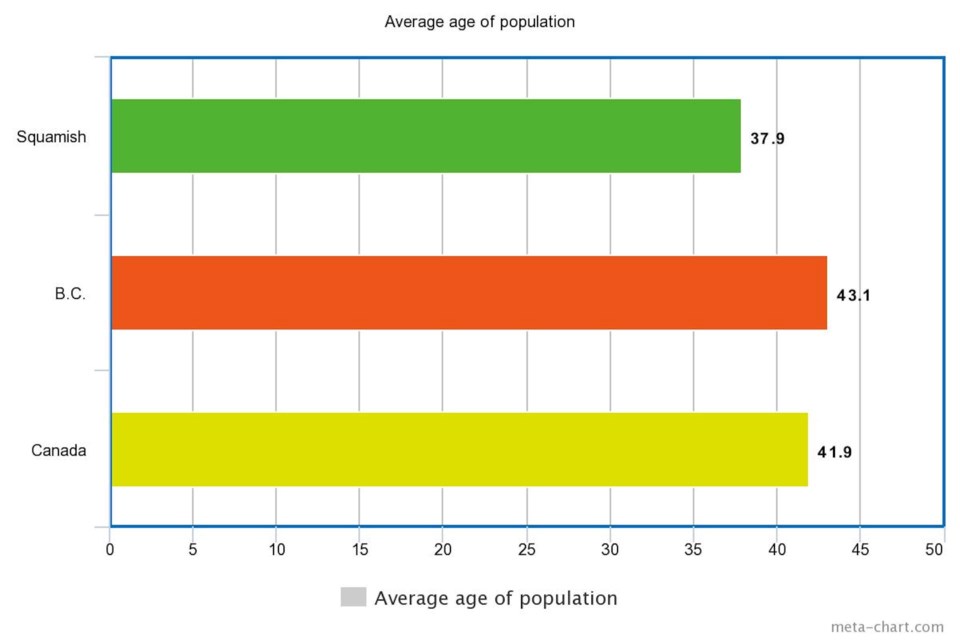Squamish has more people per household, a younger population and less single-family housing compared with national averages.
On April 27, Statistics Canada released another batch of 2021 census data gleaned from last year's surveys.
The findings revolved around age, dwelling types and gender.
The results being discussed involve the land within the municipality's borders. This isn't to be mistaken with the census agglomerate area, which also includes areas that aren't formally within the municipality's boundaries, but are lumped together for statistical convenience.
Squamish is relatively young, with an average of 37.9 years of age compared with the national average of 41.9, and the provincial average of 43.1.
The town's younger age is a divergence from national trends, which, in a summary of its findings, Statistics Canada said points to a generally aging population.
"The 2016 Census marked the first time that the number of Canadians aged 65 and older topped the number of children younger than 15. Since then, the gap has widened from 96,000 in 2016 to just over 1 million in 2021," reads the census summary released on April 27.
Regarding gender, the census findings show that Squamish has about 12,000 men and 11,700 women. These categories include men, women, boys, girls and those identifying as non-binary.
That's a roughly 51% to 49% split.
There is also another detail regarding the data on gender — Statistics Canada noted that since the non-binary population is small, data was aggregated to a two-category gender to protect the confidentiality of the responses. As a result, non-binary individuals are distributed into the other two gender categories.
According to the numbers, there are about 9,200 dwellings or homes in the District of Squamish.
Single-family homes make up about 3,700 of these dwellings. The next most popular dwellings are low-rise apartment units — in buildings five storeys or less — at over 1,600.
The third most popular are rowhouses, which make up about 1,330 homes in Squamish.
The findings show that 41% of the homes in Squamish are detached single family-homes. In B.C., that percentage is about 42%. In contrast, that number is 52.6% nationwide.
Insights were also given into the number of people living per household.
One common tale heard around Squamish is the number of roommates being crammed into residential dwellings as a result of the need to share the burden of expensive rent.
The latest census results show that there is at least some truth to that perception.
The average household size in Squamish is 2.6 people. On the other hand, the provincial average is 2.4, which is the same as the national average.
Statistics Canada will release another batch of census data on July 13.




